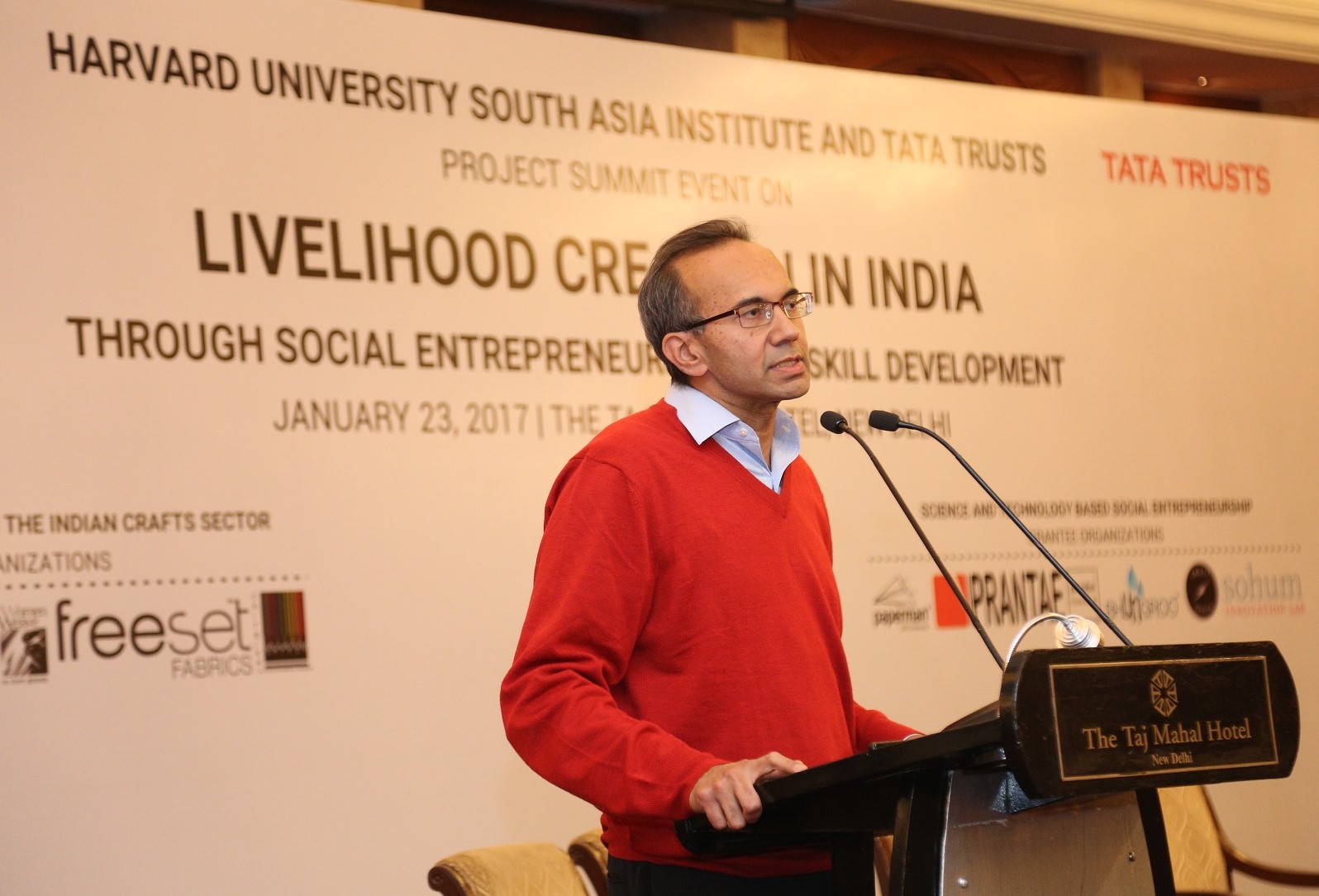The following article, originally published in ThePrint, covers Mittal Institute Director Tarun Khanna’s participation in the Prime Minister’s Committee to select India’s 20 world-class ‘Institutes of Eminence.’
New Delhi: The Prime Minister has formed a high-powered committee, headed by former Chief Election Commissioner N. Gopalaswami, with Houston University President and a senior Harvard academic on board to select India’s 20 world-class ‘Institutes of Eminence’, ThePrint has learned.
Former bureaucrat Gopalaswami will head the Empowered Expert Committee (EEC) that will, in effect, be the final authority to select the 20 institutes from a list of 104 that have applied for the coveted status.
The former CEC is currently vice-president of the Vivekananda Educational Society, an organization affiliated to the RSS, which runs a group of schools around Chennai.
Conceived and formulated under the close scrutiny of the Prime Minister’s Office, this high-priority project aims to catapult Indian institutes to global recognition. The Centre has promised unprecedented academic and administrative autonomy to the chosen 20. Ten of these will be government-run and receive special funding.
A committee headed by the Cabinet Secretary had shortlisted the members for the EEC, which has finally got approval from the PM who heads the Appointments Committee of the Cabinet (ACC). The EEC members are expected to serve a three-year term.
Gopalaswami, a Padma Bhushan awardee, is a retired IAS officer from the Gujarat cadre. Currently, chairman of the Kalakshetra Foundation, Gopalaswami had courted controversy in 2009 for recommending removal of Election Commissioner Navin Chawla when he was CEC.
Prof. Tarun Khanna, who was schooled in New Delhi, is the Jorge Paulo Lemann Professor at the Harvard Business School and Director of the Lakshmi Mittal South Asia Institute, Harvard University.
Renu Khator, holds the dual titles of chancellor and president of the University of Houston. She is the first Indian American to lead a major research university in the United States. The Uttar Pradesh-born Khator is a well-known scholar in the field of global environmental policy. She was also awarded the Pravasi Bharatiya Samman by the Indian government.
Dr. Pritam Singh, former Director IIM Lucknow and MDI Gurgaon, is the fourth member of the EEC.
Of the 104 institutes in the fray for the status of ‘eminence’, 71 are government funded ones including most of the IITs, IIMs and a number of NITs. Top private institutes are also in the fray.
The experts of eminence
The EEC is critical to the concept of ‘Institutes of Eminence’ and the government wants its members to be above board. It is also felt that members with global work experience may help these institutes achieve global status.
The EEC will recommend names of the chosen institutes to the University Grants Commission. It will also monitor and review these 20 institutions of eminence to ensure quality, decide on appeals, liquidation of corpus fund if needed, verify compliance to financial requirements if required, assess deviations from goals and standards identified.
Since the notorious UGC inspection regime is being waived for these institutes, a disclosure-cum-review mechanism will be brought in for which the EEC may rope in foreign experts.
The EEC will review the institutes once in three years for adherence to their implementation plan until they achieve the top 100 global ranking slot for two consecutive years. The institutes will also have to inform the EEC every year about their progress and may be asked to address deficiencies or face penal action if they fail to deliver.
ThePrint had reported how the government had drawn up an impressive short list of 36 to appoint the EEC members. Among these were the Principal Economic Advisor Sanjeev Sanyal, former NITI Aayog vice-chairman Arvind Panagariya and former RBI governor D. Subbarao. A number of well-known Indian academics in top positions in foreign universities were also on the shortlist.
Correction by The Mittal Institute: ThePrint’s article states Professor Khanna was “schooled in Delhi”. In fact, he completed his secondary education in Bengaluru and Mumbai, before heading to Princeton University as an undergraduate.

